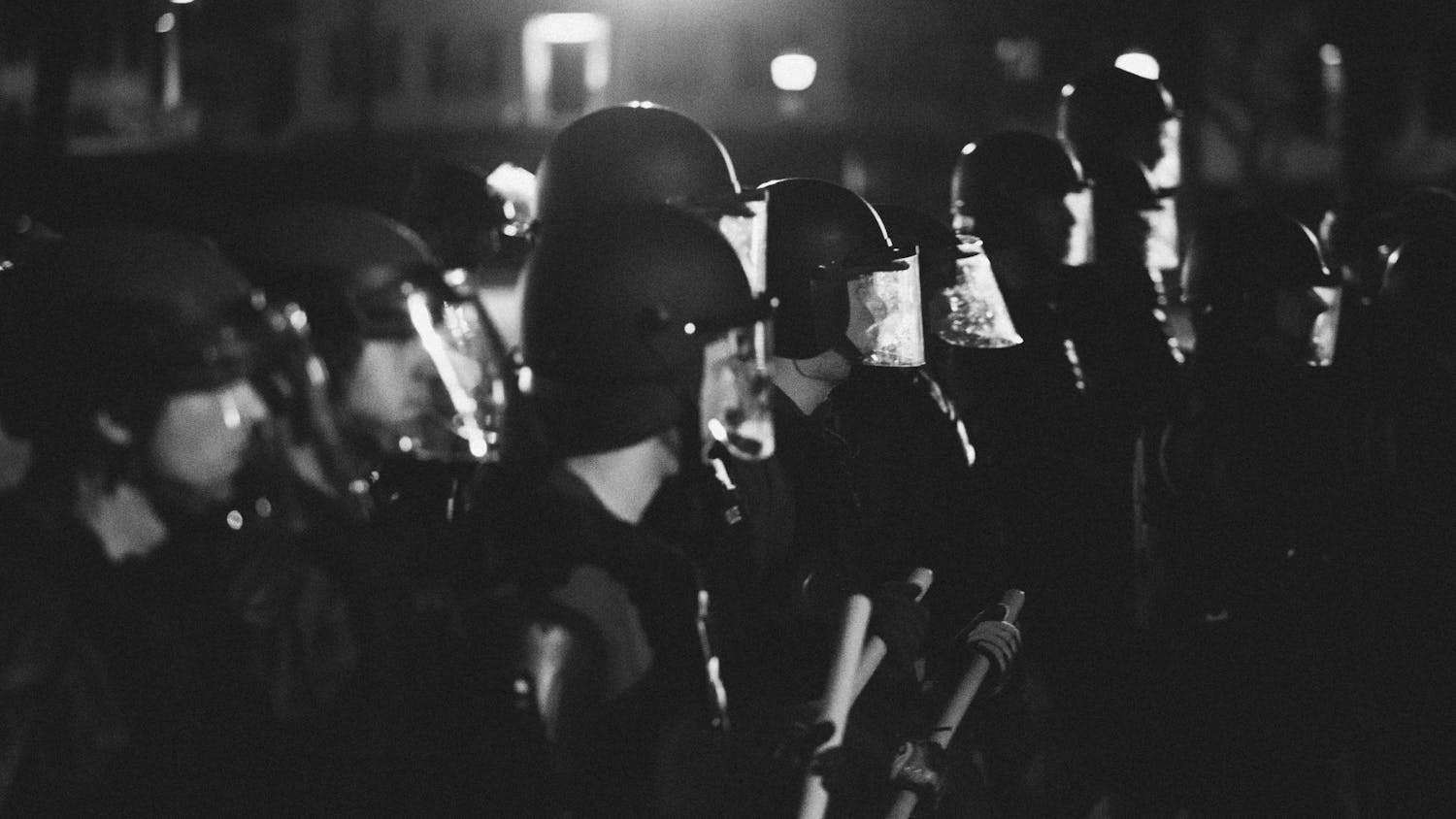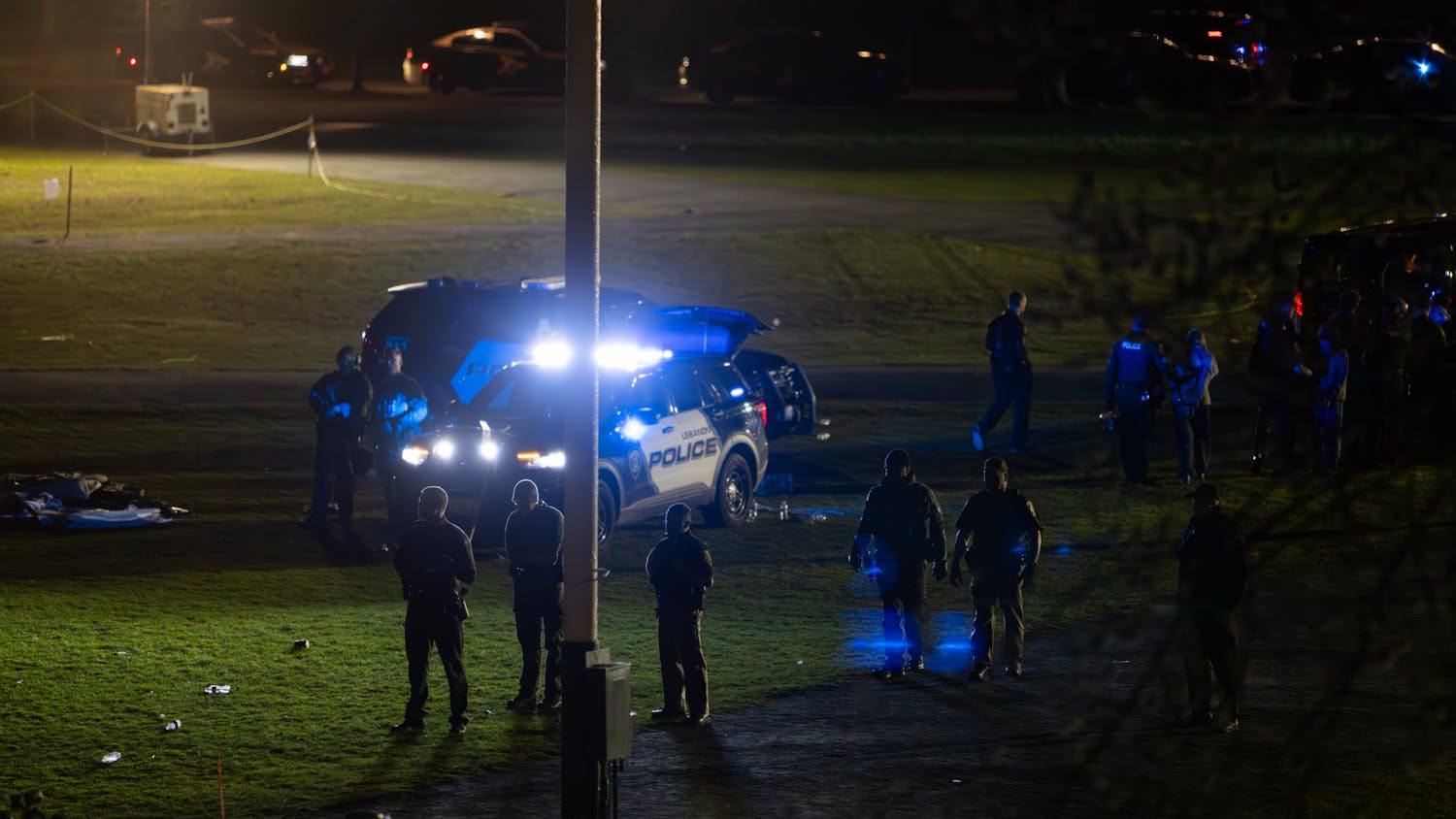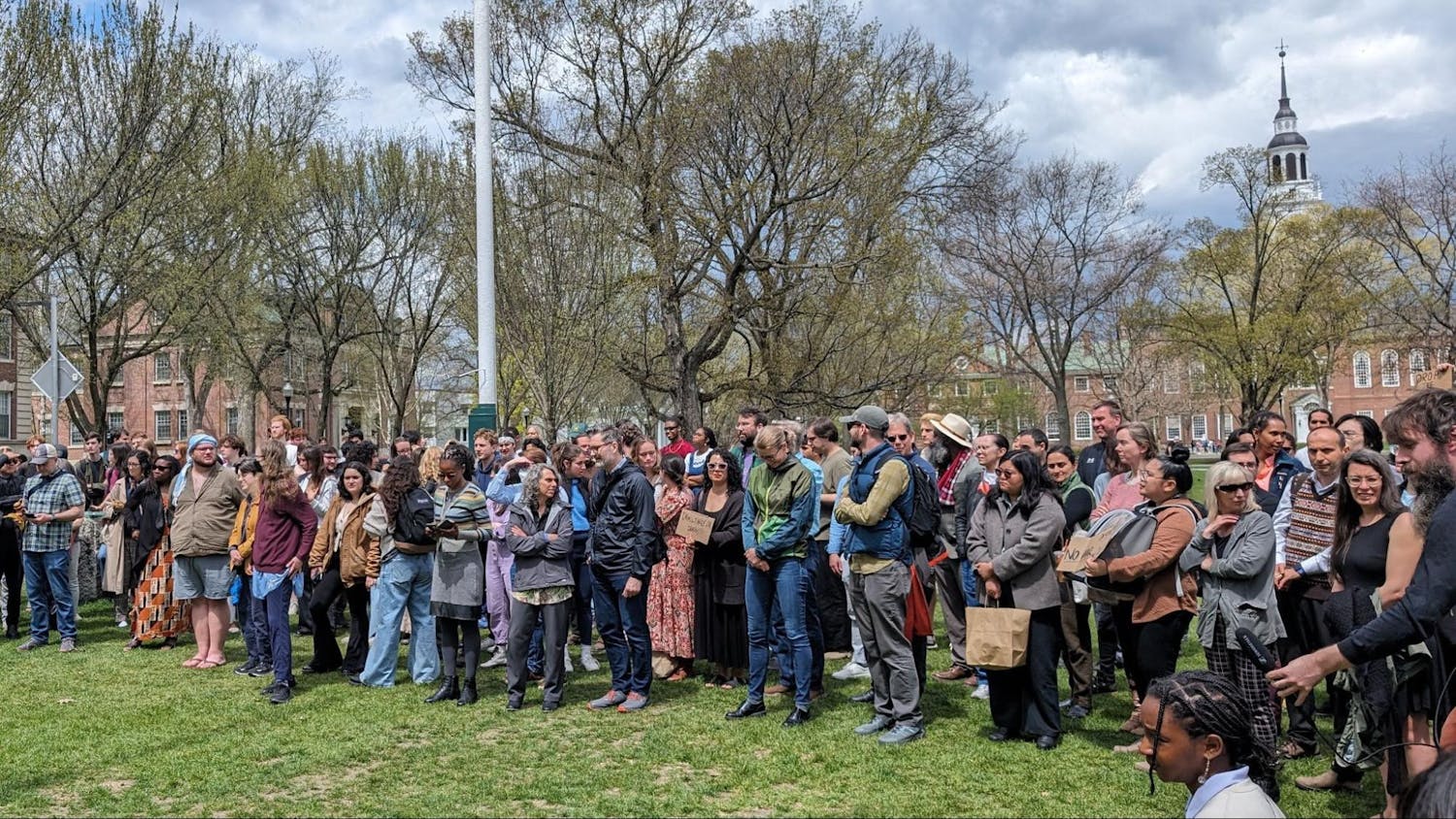As finals draw near, students are chronically interrupted by false fire alarms in the Berry and Baker libraries due to an unavoidable clash between the dust of construction and overly sensitive alarm systems.
Construction in Baker has set off the fire alarm 30 to 40 times, said Corky Scott, business specialist in Baker Library, in what he called a conservative estimate.
Rarely has this been the fault of workers."The greatest problem is dust ... the fire detectors can't tell the difference between smoke, dust or even water. Construction creates dust and it goes everywhere," Scott said.
However, he added, "one alarm was caused by a construction worker on the backswing of his sledgehammer."
Workers from Barr & Barr, the construction company responsible for the work in Baker/Berry, asked not to be quoted, but expressed frustration that the fire department could not disable the alarms. They noted that setting off the alarm system is hard to avoid due to the system's extreme sensitivity.
Captain Mike Clark of the Hanover Fire Department empathized with this sentiment, noting that they also make things difficult for the department, but asserted that the alarms are extremely important.
"Unfortunately for the workers, these are occupied buildings. There is a high life load consideration -- the students, faculty and visitors."
Actually, according to Deputy Librarian John Crane, the library is at higher risk than normal. "It's a fact that buildings are at a heightened risk of fire during periods of construction," said Crane.
According to Scott, Facilities, Operations and Management selectively turns off some alarms.
"Each morning FO&M meets with Barr & Barr to decide what alarms to turn off," explained Scott. "But in this system, which was installed 10 years ago, it is still difficult to turn off specific parts of the alarm."
Crane looked at the bright side of the situation. "The good news is that we know that we've got a sensitive fire alarm in the building," he stated.
Regardless of the large number of false alarms, which average one per week, the fire department has not tapered its response.
"We always take for granted on our way from town that it is an emergency situation," Clark said. He explained that the only reason the situation would be treated otherwise is if the fire department received a call from the library verifying that the alarm was set off by accident.
The fact that many students have become apathetic towards the alarms, thinking that every alarm must be false, may be a problem.
Crane acknowledged their difficulties, noting that "the alarms add a major inconvenience factor, especially for students in class or otherwise using the library.
Scott realizes the implications of this problem are great. The possibility that students won't get out "is in the back of my mind every time we have an alarm. Once I had to literally kick kids out," he said.
Neither the College nor the fire department has taken specific disciplinary measures against students who are reluctant to evacuate, but, according to Scott, "being in a building with a fire alarm going off is against the law."
"It is just a good policy to leave the building. Shuffle out of the building and we will get you back in as soon as possible," Clark insisted.
According to Scott, the process of turning off the fire alarms takes on average 20 to 25 minutes. Clark estimated that the fire department arrives on the scene in 10 to 12 minutes.
Scott cited one instance over the summer in which the alarm was real.
"One time we had a fire -- it was set by a worker using alcohol-based paint remover." According to Scott, the worker's tool slipped, splitting a hot wire and setting off a "blossoming fire that raced to the ceiling. The guy turned around, snapped the alarm down and started to put the fire out with a fire extinguisher."
No one was injured in the fire, "but one is too many," Crane said, reaffirming the need to keep the alarm systems sensitive and working.
Started in 1998, the renovations should be complete by the end of Spring term, when students can look forward to the characteristic library silence returning to Baker and Berry.



